Research Newsletter
Please enjoy this snapshot of the recent cutting-edge research conducted by faculty and students at Southern Illinois University Carbondale.
A message from Vice Chancellor for Research Costas Tsatsoulis
Dear friends of Southern Illinois University Carbondale:
It is my honor to share with you this newsletter, which highlights some of the outstanding research performed by the SIU Carbondale faculty, staff and students.
In this issue, you will read about the breadth of our research, including:
- Using artificial intelligence to prevent and fight crime.
- Receiving a NASA grant totaling more than $2.6 million for the study of the sun and its influence on space and a critical science that affects daily life.
- Studying how to use abandoned coal mine drainages to salvage rare earth elements used to power renewable energy and defense applications.
- A citizen-science project aiming to understand the animal sensory system by studying their behavior during a solar eclipse.
These research projects and awards are only a few of the SIU Carbondale accomplishments you will find in our newsletter.
And they, in turn, are a small part of our overall 2022-23 research performance: our university was awarded a total of $95.7 million in research, training and service-based grants and contracts, an increase of 21% compared to the previous year. Top federal funders of grants to SIU Carbondale in 2022-23 were the Department of Health and Human Services, the National Science Foundation, the U.S. Department of Agriculture, and the U.S. Department of Education. Top state funders of SIU Carbondale were the Illinois Department of Economic Opportunity, the Illinois State Board of Education, the Illinois Department of Human Services and the Illinois Department of Natural Resources.
As reported to the National Science Foundation’'s Higher Education Research and Development survey, research and development expenditures at SIU Carbondale totaled $58.3 million in 2022-23.
I hope that the stories in this newsletter offer you a snapshot of SIU Carbondale as it continues to excel in its mission to perform research that serves the state and the nation.
Best Saluki Wishes,
Costas Tsatsoulis,
Vice Chancellor for Research and Graduate School Dean
Southern Illinois University Carbondale
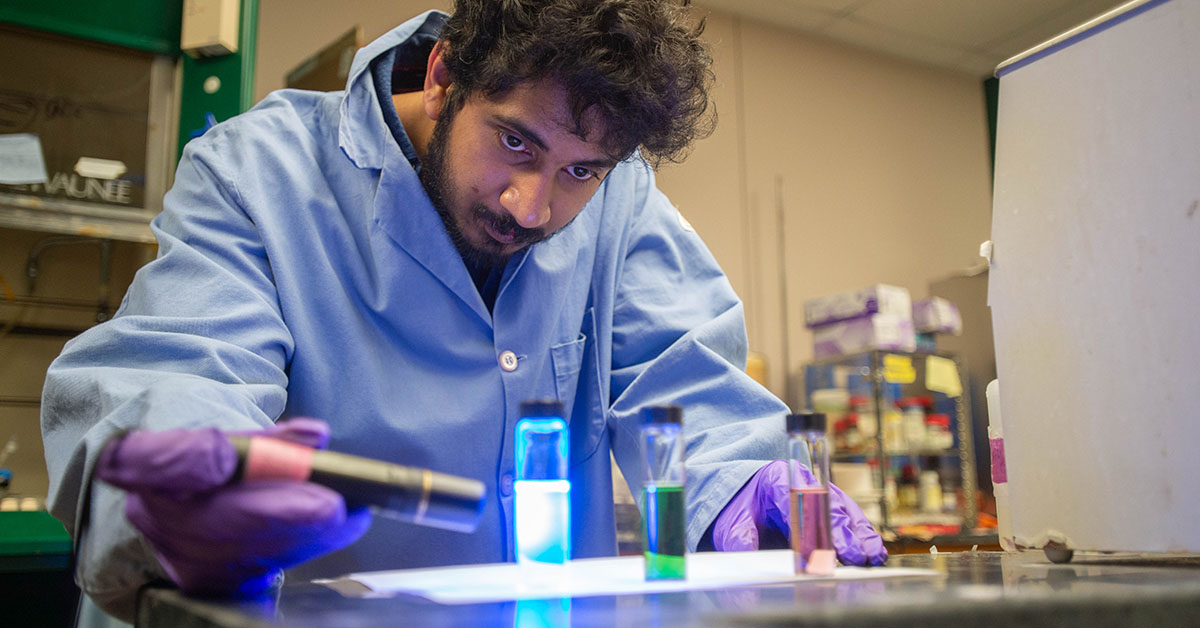
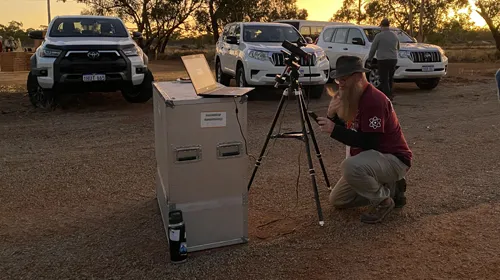
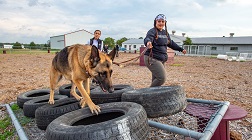
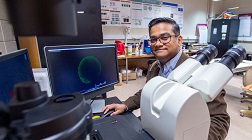
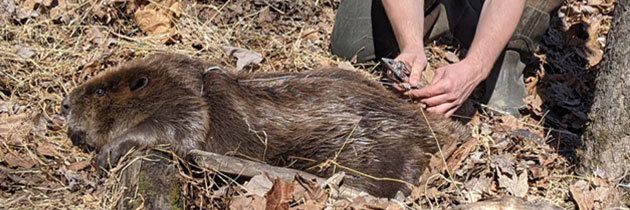
Exploring how to use AI to prevent and fight crime
Even as artificial intelligence rises as a new technology, Ahmed Imteaj, an assistant professor in Southern Illinois University Carbondale’s School of Computing, is looking at how, when it comes to crime, some things never change. The one-year project is funded with a nearly $100,000 grant from the U.S. Department of Homeland Security.
How COVID lockdown impacted wild animal movement
Deer and other wild animals moved more freely during the COVID-19 lockdowns, according to a study that includes work from Guillaume Bastille-Rousseau, assistant professor with Southern Illinois University Carbondale’s Cooperative Wildlife Research Laboratory. Bastille-Rousseau is among more than 170 co-authors of the study, published by the journal Science
Genetic research on a devastating childhood cancer
Judith Davie, associate professor of biochemistry and molecular biology in the Southern Illinois University School of Medicine, is exploring ways to turn off a genetic switch that allows rhabdomyosarcoma, a rare but devasting cancer, to progress in children. Her research is funded by a $445,500, three-year grant from the U.S. Department of Health and Human Services.
Using celestial marvels as inspiration to study the sun
NASA is sending a Southern Illinois University Carbondale research team more than $2.6 million for the SolarSTEAM project. The grant, which runs August 2023 through June 2026, will pay for a multifaceted, national heliophysics public engagement and empowerment program centered on the April 8 total solar eclipse and related events, including those at SIU.
A citizen-science project to listen to nature during the eclipse
Brent Pease, assistant professor in the forestry program at Southern Illinois University Carbondale, is partnering with the Eclipse Soundscapes project. The citizen-science effort at SIU, part of a larger NASA SCoPE grant to another agency, will use volunteers to strategically place 100 sound recording instruments around the area to listen in on nature before, during and after the April 8 total solar eclipse.
Searching abandoned coal mines for rare earth elements used in green energy
Jia Liu, associate professor in Southern Illinois University Carbondale’s School of Civil, Environmental and Infrastructure Engineering, is using a two-year grant of nearly $200,000 from the U.S. Department of Interior to develop ways to salvage rare earth elements from the abandoned coal mine drainages dotting the Southern Illinois landscape. These elements are key to the energy sources that power many modern technologies.
Virtual training to foster faster, better decisions in sports and more
Scott Boatright, a doctoral candidate at Southern Illinois University Carbondale’s Organizational Learning, Innovation and Development program, is researching whether people can train with simulation and extended reality to make split-second decisions more quickly and effectively. His work may have implications for sports officiating, safety, the military and the medical field.
Diving into neuroscientific research
Southern Illinois University Carbondale psychology student and co-captain of the swim team Ella Kerr has immersed herself in not one, not two, but three intriguing research labs. She’s involved in studies that run the gamut from sleep habits of children with autism to the effects of stress on the brain.
Seeking causes, solutions for pituitary-related conditions
Buffy Ellsworth, associate professor of molecular and integrative physiology at the Southern Illinois University School of Medicine, is part of a multi-university research project to unravel the mystery behind congenital hypopituitarism, a condition that can result in serious health issues and in some cases, infant death. A $2.77 million grant from Eunice Kennedy Shriver National Institute of Child Health and Human Development is funding the project.

